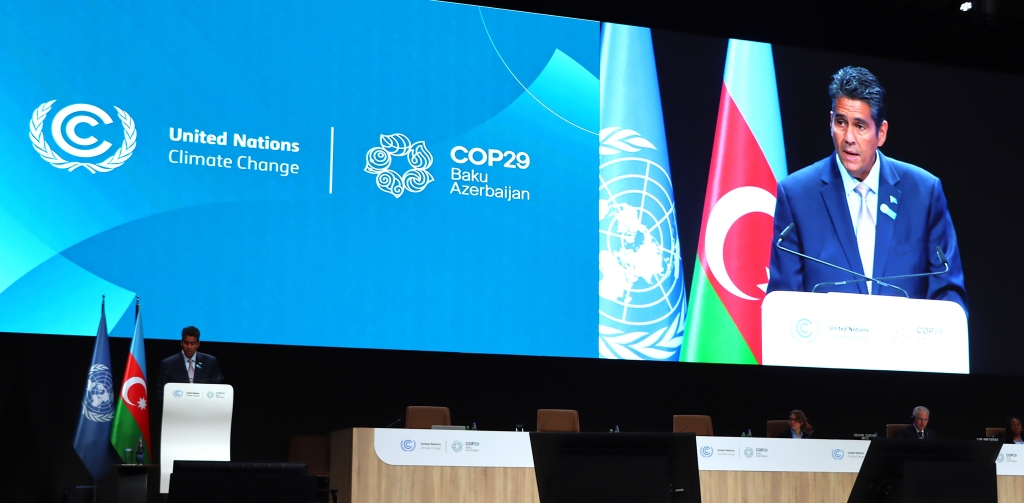As global attention turn to what and how COP29 would decide on a new finance goal, the legend of a Palauan fisherman from the village of Ngarchemai has been used to illustrate the risks of indecision, and the need for world leaders to choose wisely for the survival of humanity.
The fisherman apparently dove into the water after a turtle only to realise he failed to anchor his boat. Seeing his boat drifting away he couldn’t decide whether to go after the boat or the turtle. Caught in indecision, he lost both his boat and the turtle.
“We must make decisions, and we must act,” the President of Palau, Surangel Whipps Jr said. “Our Planet and our People depend on it.”
One of those key decisions is on the New Collective Quantified Goal (NCQG), which is likely to define the success or the failure of this COP. The NCQG seeks to fill persistent gaps in climate finance, building on the US$100 billion target set in 2009 and aiming to provide a more realistic and ambitious financial framework for the parties. The NCQG is a top priority for Pacific countries in Baku.
“The New Collective Quantified Goal on climate finance represents our joint commitment to addressing the climate crisis equitably and effectively. The NCQG must ensure that finance is easily accessible, and sufficient to meet our adaptation, mitigation and loss and damage needs. The actions we take from this day forward are vital for our survival,” President Whipps Jr said.
Palau, like many Pacific Island countries, is already living with the impacts of climate change. The President of Palau, who opened the resumed High-Level segment at Nizami Plenary Hall, did not mince words about the impacts of climate change.
“We talk about invasions, acts of piracy and terrorism that threaten global peace and stability. I come here to tell you that climate change is already invading our islands, threatening our food security, our infrastructure, our economy, our culture and our very existence.”
On the mitigation ask for 1.5 to stay alive and the Global Stocktake (GST), Palau called on the global community to reaffirm their collective agreement in Paris to stay below 1.5.
“Palau has taken significant strides in its mitigation efforts by prioritising renewable energy, implementing nature-based solutions, and fostering community resilience to combat climate challenges. We call on Industrialised countries to escalate the phasing out of fossil fuels.”
Palau also recognises the vital link between the ocean and climate.
“The Ocean bears the brunt of the climate impacts caused by greenhouse gasses. Here in Azerbaijan, you are suffering from sea levels that are receding,” said President Whipps Jr.
“In Palau and the Southwest Pacific, sea levels are rising faster then other areas of the world, sea surface temperatures have risen three times faster than the global average since 1980 and Marine heatwaves have doubled in frequency, are more intense and longer. Our stingless jellyfish are disappearing, our corals are bleaching, and our fish population is declining all due to our addiction to fossil fuels.
“We must prioritise the ocean-climate nexus, by advancing sustainable ocean economies, marine conservation, and resilient coastal ecosystems.”
Palau also used the global platform to seek additional partnerships in the Unlocking Blue Pacific Prosperity plan launched at COP28, which invests in blue priorities such as food security, sustainable fisheries, coral reef protection, and coastal defences.
“By supporting blue economies and protecting marine resources, we safeguard our island communities and contribute to global climate goals and vital biodiversity preservation.”
Lastly, Palau expressed support for Australia’s bid to co-host COP31 in partnership with the Pacific, with the President saying the people responsible for the decision should “not deny the Pacific this rare opportunity to help host what is the most important international forum for our future.













